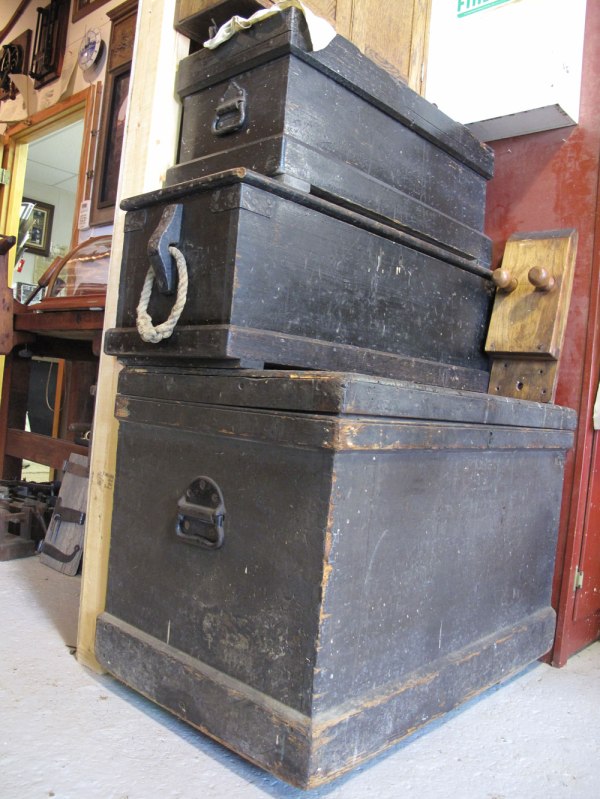
Sometime in the late 1990s I had three full sets of chisels – Marples Blue Chips, Ashley Iles and some fine blue-steel Japanese chisels. But instead of enjoying the fact that I had more chisels than my father, grandfather or uncle, I was grumpy.
I was pissed (with myself) that I had three sets of chisels to maintain. Three sets to store. Three sets that would set me back in my efforts to master one set of chisels. All this was made worse by the fact that we had a water-cooled grinder in the shop. So every time I had a chip in a Blue Chip, I had to cool my jets for a half hour with the water-cooled hummer.
But it wasn’t just chisels.
No one needs five smoothing planes, two jointer planes, three jack planes and six shoulder planes to build ordinary furniture. That’s not a working set of tools, that’s a never-ending obligation to sharpen, tune and learn an overly large set of tools.
As one of my female friends put it: “Why are men always fantasizing about sleeping with two or three women? They can barely handle one.”
The same is true with tools. For the last several years I’ve been selling or giving away all of the excess tools that accumulated on my shelves as editor of Popular Woodworking Magazine. I had bought those tools with my own money, and so I felt responsible for them. They had to be protected from rust and dust. They had to be lubricated occasionally. They had to be used, or I would feel guilt.
At first it was easy to sell the tools that I didn’t want to review in the magazine in the first place. Then came the tools I used on occasion. Then the tools that were made by people I really liked. And the tools that I was inexplicably attached to. Every time I thought I had gotten to the bare bones set of tools, I found I was wrong. I could get rid of more.
What proved me wrong? My tool chest.
When I defined my working set of tools as only the tools in my chest, I found myself becoming less of a zookeeper and more of a woodworker. I now know exactly how much backlash is in every metallic plane I own. When I pick up each of my planes, I can tell if someone else has been using them – I don’t know how. Because I have one jointer, one jack and two smoothing planes, I spend less time sharpening and cleaning and lubricating, and I spend more time building.
Some of this drivel above might sound like a rehash of themes from “The Anarchist’s Tool Chest” – and perhaps it is. But I can tell you that after two years of working with a small set of tools, these ideas have become even more entrenched in my day-to-day life.
And here’s the important part: As I have become more skilled with the basic set of tools, I see no need (for me) to buy specialty tools.
It’s the specialty tools that can get you. The Stanley 98/99 planes sure look handy to widen dados. But instead I just make the mating shelf thinner with my jack. A bullnose plane looks good for cleaning up stopped rabbets, but chisels are just as fast. Dado planes look like a quick way to knock a carcase together. A sash saw and chisel, however, are almost as fast and are already sharp and set up.
I could go on like this for pages and pages when it comes to specialty tools.
I’m not saying that specialty tools shouldn’t exist – if you do repair work most of the day, you probably are going to need a chisel plane. But if your work isn’t specialized (note that I didn’t say “special”), I think that specialty tools should be way low on your list of things to acquire, down next to “gut punch” and “recreational colonoscopy.”
Caveat: OK, if you like to collect tools and that makes you happy, then by all means collect tools. Collect thousands of them. Take care of them, preserve them for future generations and learn all you can about them. But don’t fool yourself into thinking that you need all of them if you really just want to build chests, cabinets, tables and chairs.
If construction (not collecting) is your goal, find some way to limit yourself – a tool chest is one way – so you can be a better builder than you are a consumer.
— Christopher Schwarz